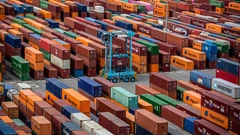EU Needs Carbon Pricing in Agriculture to Reach Net Zero, Advisers Say
(Bloomberg) -- The European Union should consider introducing carbon pricing in agriculture and strengthening its emissions market to reach its ambitious target of climate neutrality by the middle of the century, according to its advisory body.
The 27-nation-bloc needs to accelerate greenhouse gas reductions across the economy to achieve its targets over the next two decades, particularly in buildings, transport, farming and forestry, the European Scientific Advisory Board on Climate Change said in a report on Thursday.
The recommendations come as the European Commission, the bloc’s regulatory arm, finalizes a blueprint for the region’s 2040 climate goal to be presented on Feb. 6. The region cut its greenhouse gas emissions by 35.2% in 2022 from 1990 levels. However, by the commission’s own assessment it’s off track for lowering pollution by at least 55% by the end of decade.
“The EU has made great progress in recent years to strengthen its climate policy framework,” said Ottmar Edenhofer, chair of the advisory board. “But reaching climate neutrality by 2050 is a race against the clock, and we cannot afford to lean back now.”
The EU Green Deal strategy to reach net zero will affect every part of the economy, requiring more effort from consumers and businesses. Europe wants to be a global leader in the clean shift, an increasingly challenging objective after US President Joe Biden’s landmark climate package and competition from China in low-carbon technologies and critical materials.
The bloc’s net emissions should be at least 90% lower by the end of the next decade than in the 1990s to be climate neutral by 2050, the advisory board recommended last year. That possibility has already fanned concerns within industry as the EU is still grappling with the effects of an energy crisis triggered by a cut in natural gas supplies following Russia’s war in Ukraine.
Accelerating carbon cuts in agriculture is set to be another sticking point, with previous attempts to green up farm policies leading to push-back from farmers.
The advisory board said emissions in agriculture are not falling, mainly due to a lack of adequate financial incentives for farmers. At the same time, European forests are getting older and absorb less carbon.
The scientists recommended shifting support away from emission-intensive agricultural practices like livestock production, towards lower-emitting products and activities, as well as introducing “some form of emissions pricing in the agricultural and land use sectors by 2031 at the latest.”
Other recommendations include phasing out fossil fuel subsidies, strengthening the EU carbon market, pursuing greater energy savings and stepping up efforts to drive the required increase in public and private investment in climate mitigation.
©2024 Bloomberg L.P.
KEEPING THE ENERGY INDUSTRY CONNECTED
Subscribe to our newsletter and get the best of Energy Connects directly to your inbox each week.
By subscribing, you agree to the processing of your personal data by dmg events as described in the Privacy Policy.
More renewables news

GB Energy Faces New Doubts as UK Declines to Affirm Future Funds
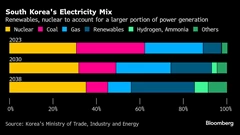
Korea Cancels Planned Reactor After Impeaching Pro-Nuke Leader
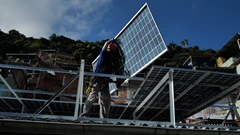
Brazil’s Net-Zero Transition Will Cost $6 Trillion by 2050, BNEF Says
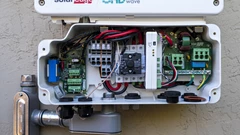
SolarEdge Climbs 40% as Revenue Beat Prompts Short Covering
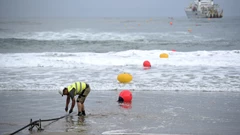
EU to Set Aside Funds to Protect Undersea Cables from Sabotage
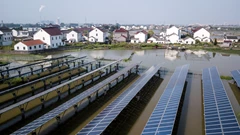
China Revamps Power Market Rules In Challenge to Renewables Boom

KKR increases stake in Enilive with additional €587.5 million investment
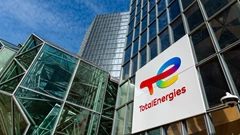
TotalEnergies and Air Liquide partner to develop green hydrogen projects in the Netherlands
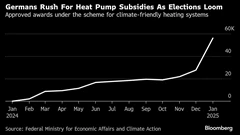
Germany Set to Scale Down Climate Ambitions
